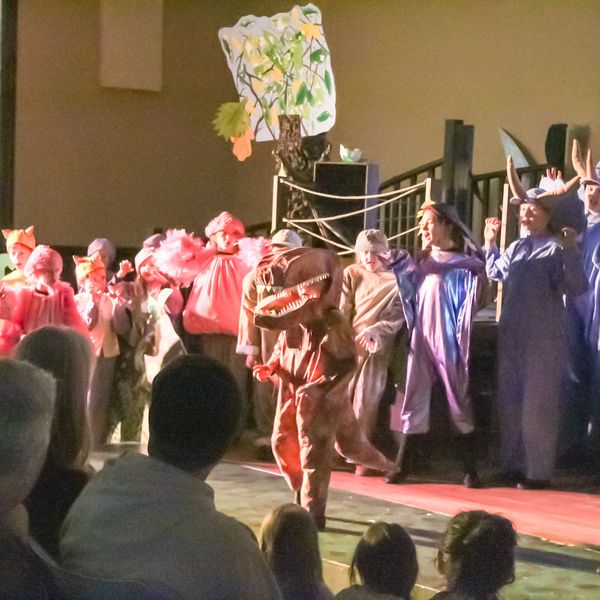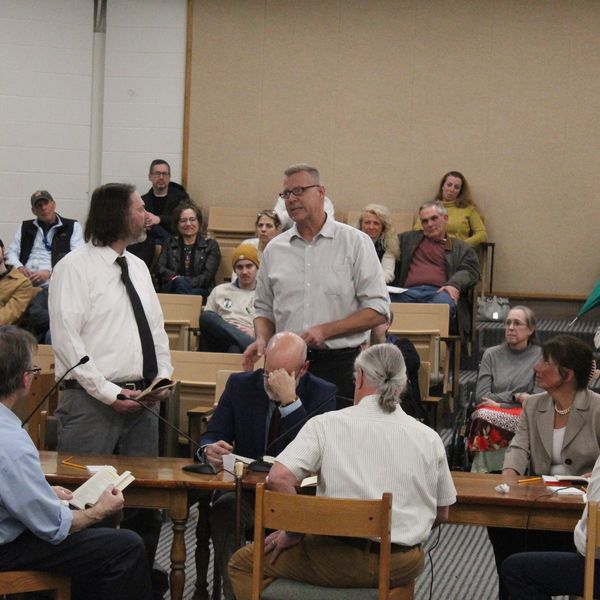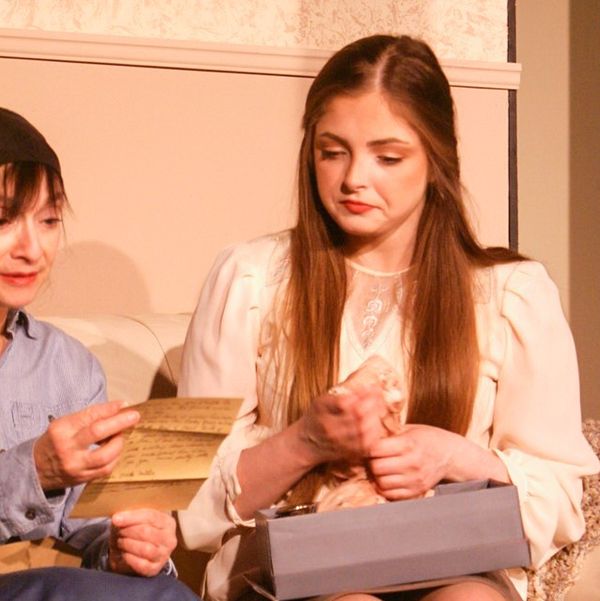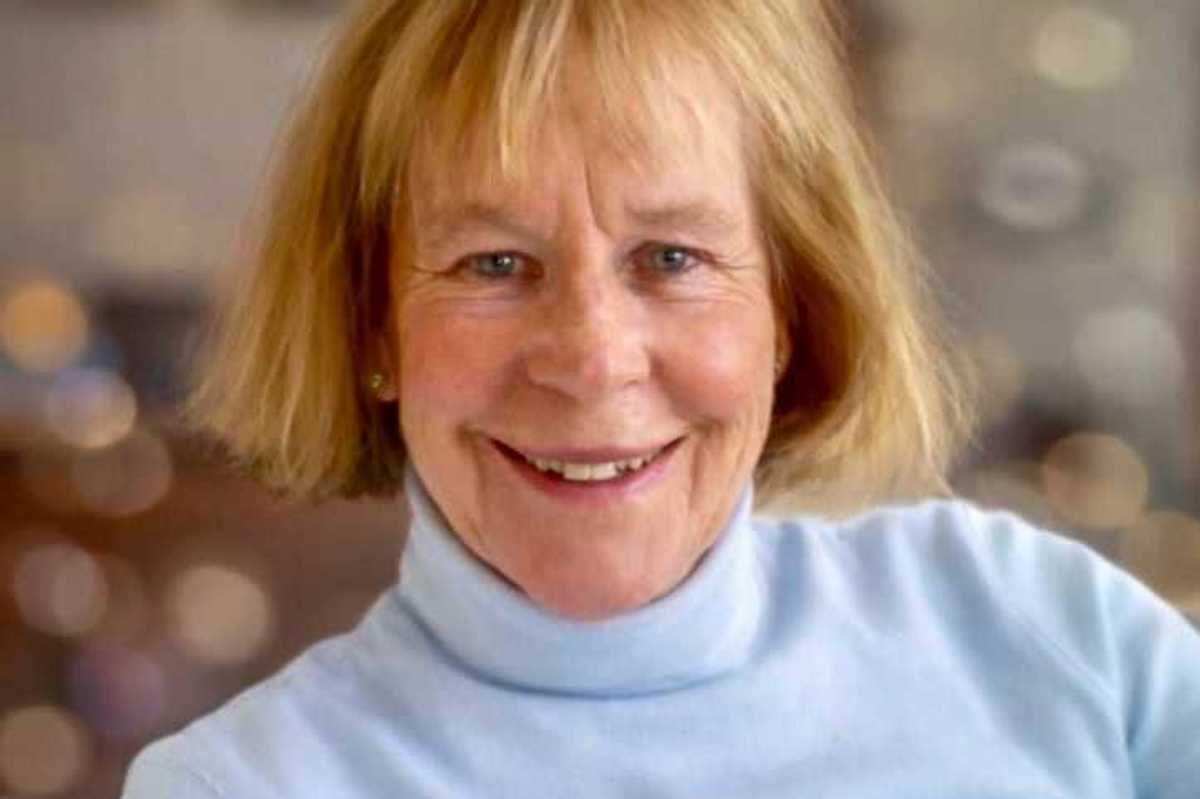Latest News
Kathleen Rosier
Lakeville Journal
Feb 18, 2026
CANAAN — Kathleen Rosier, 92, of Ashley Falls Massachusetts, passed away peacefully with her children at her bedside on Feb. 5, at Fairview Commons Nursing Home in Great Barrington, Massachusetts.
Kathleen was born on Oct. 31,1933, in East Canaan to Carlton and Carrie Nott.
Kathleen retired from Housatonic Curtain Company where she was a machine operator for many years.
She was predeceased by her husband of 65 years, John A.Rosier Sr., her son John A Rosier Jr., her son Frank H. Rosier and her brother Jerome Nott.
Kathleen leaves behind her son, Brian Rosier and his wife JoEllen of East Canaan, her daughter, Theresa Morin of Ashley Falls, her daughter, Lisa Dawson of Great Barrington, a brother Henry Nott, her sister Ann Percy, 11 grandchildren, nine great grandchildren and many nieces, nephews and friends.
There will be a celebration of life held in her honor on Feb. 21 from 1 to 4 p.m. at the Bitterman Center in North Canaan. All are welcome to come.
Keep ReadingShow less
Carolyn G. McCarthy
Lakeville Journal
Feb 18, 2026
LAKEVILLE — Carolyn G. McCarthy, 88, a long time resident of Indian Mountain Road, passed away peacefully at home on Feb. 7, 2026.
She was born on Sept. 8, 1937, in Hollis, New York. She was the youngest daughter of the late William James and Ruth Anderson Gedge of Indian Mountain Road.
Carolyn’s first job out of high school was at the Time and Life building in Manhattan, New York. In 1956, she went on to work for Capital Airlines until they disbanded.
She began banking in White Plains, New York, where she met her husband Edward James McCarthy. They started their family and relocated to Pleasant Valley, New York. She then returned to banking in Poughkeepsie, New York and later pursued real estate.
Carolyn was very creative and enjoyed home making, gardening, sewing, knitting, cooking and baking. Her Christmas cookies were always remarkable. She had a pioneer spirit and embraced the toil of yard chores. She was very independent and at 87 she still shoveled the driveway in the winter, mowed the grass, trimmed the bushes, raked the leaves and dragged the brush. She took pride in the manicure of the grounds where she resided.
Carolyn was a wonderful mother who had an enormous heart. She loved all animals, wild or tame. She will be dearly missed by her family and the people that knew her.
She is predeceased by her husband Edward McCarthy Sr. and her brother Dr. Stafford Gedge of Minnesota.
She is survived by her son, Edward (Anne) McCarthy of Greenfield, Massachusetts, and grandsons James and Theodore, son Sean McCarthy of Oak Hill, New York, sister Nancy Dougherty of South Carolina, nieces Lynn Warner, Debra Phillips, Susan Nelson, Christine Richards and nephews William, James and Robert Gedge.
A private service will be held at a later date.
The Kenny Funeral Home has care of arrangements.
Keep ReadingShow less
Ronald Ray Dirck
Lakeville Journal
Feb 18, 2026
SHARON — Ronald Ray Dirck, affectionately known as Ron, passed away peacefully with his family at his side on Jan. 17, 2026, in Phoenix, Arizona, at the age of 85. Born on Jan. 31, 1940, in Sedalia, Missouri, Ron lived a life filled with warmth, laughter, and deep devotion to his family.
Ron shared an extraordinary 62-year marriage with his high school sweetheart and beloved wife, Jackie. Their enduring partnership was a shining example of living life to the fullest.
Ron served his country as a captain in the US Marine Corps, flying helicopters during the Vietnam War. He then flew commercially for TWA for 25 years, both domestically and internationally. He finished his flying career with Nippon Cargo Airlines. Ron enjoyed the outdoors and enjoyed taking care of their beloved Sharon, home for more than 50 years. He was also an avid builder and enjoyed his many projects over the years.
In retirement, Ron and Jackie split time between Sharon, and Phoenix, Arizona, before settling full-time in Phoenix two years ago. Ron loved his evening cocktails with Jackie and their many friends, as well as a hand or two of gin rummy.
He was a devoted father to Melissa Dirck Appel and her husband, Jeff Appel, and Patrick Dirck and his wife, Lisa Dirck. He carried the memory of his son Kevin with enduring love throughout his life. His legacy continues through his cherished grandchildren; Alexandra, Caroline, Emma, Natalie, Evan, Cooper, Elle, and Tanner. Ron is also fondly remembered by his brother, Jim and wife Lena.
Ron had a tender heart for animals. The loyal companionship of his beloved dogs Mini and Mae brought him comfort and joy over the years.
He was preceded in death by his wife, Jackie, and parents, Raymond and Gladys Dirck.
In honor of Ron’s love of animals, the family asks that, in lieu of flowers, donations be made to The Aussie and Friends Rescue, www.aussiefriendsrescue.com.
His light lives on in the hearts of all who knew him. May his memory continue to bring comfort and smiles to those he touched.
A private celebration of life for the family will be held at a later date.
Keep ReadingShow less

Want more of our stories on Google? Click here to make us a Preferred Source.
Linda Lyles Goodyear
Lakeville Journal
Feb 18, 2026
CANAAN — Linda Lyles Goodyear was born in Bronxville, New York, on June 17, 1936, to Molly Gayer Lyles and James Adam Lyles. She died peacefully in her sleep on Feb. 4, 2026, of complications from dementia. As a child she spent her summers with her parents and sister, Sally, in Canaan at the family’s home along the Blackberry River that was built in 1751 by her relative, Isaac Lawrence. Linda met the love of her life, Charles (Charlie) W. Goodyear, during her Bennett College years, and after graduating they married on Aug. 4, 1956.
The two lived a busy life, raising three children and moving to 10 different states over the course of Charlie’s 43 year career with Exxon Mobil. Every two years Linda was setting up a new home, navigating new school systems with her kids and getting involved in volunteer activities.
Linda was active with the Junior League in Houston, Texas, served as Chairperson of the Darien, Connecticut, Green Team for many years and spent many hours helping at the “60+” Senior Center and the Darien Bird Sanctuary. The Town of Darien recognized Jan. 14, 2019, as Linda Goodyear Day for her accomplishments, dedication and loyal service to the town and its environmental causes.
Her other interests included photography and printing in a darkroom she set up at home, growing roses, playing piano, and sewing. Linda loved hosting parties and for decades she and Charlie held a Fourth of July gathering at their home which was the hit of the neighborhood, and was characterized by warm hospitality and Linda’s creative, patriotic outfits.
Charlie and Linda were very active throughout their lives, traveling the world and participating in many sports including alpine skiing, running, hiking, canoeing, biking and tennis.
In 1998, they built a vacation home in Hailey, Idaho, as a family gathering place for their children, grandchildren and great-grandchildren. Linda loved the beauty of the mountains and the opportunity to be in nature every day, but she especially loved being the matriarch of her ever-growing family.
Linda was very outgoing, and made new friends all over the world - people were drawn to her lovely smile, generous spirit and witty sense of humor. She was an incredibly caring person with boundless energy, a heart for service and love for others. Even in her final days her nurses and caregivers noted how sweet she was and how much she made them smile.
She is survived by her husband of almost 70 years, Charlie; her children, Chip (Elizabeth) Goodyear, Jim (Mary) Goodyear and Molly Goodyear; her eight grandchildren; Charlie (Ellen) Goodyear, Adelaide Goodyear & fiance Alastair Sharp, Will (Jenny) Goodyear, Robert (Kacie) Goodyear, Annie (Spencer) Gorham, John Goodyear, Peter Wolter and Ella Wolter; three great-grandchildren, and her nieces Deb (Jim) Edwards, Amy (Bob) Clark and Chris (Ruth) Rees. She was preceded in death by her parents, James and Molly Lyles, and her sister, Sally Rees. She leaves behind many other relatives and friends who will miss her dearly.
In lieu of flowers, donations may be made to the National Multiple Sclerosis Society or a charity of your choice.
Keep ReadingShow less
‘A beautiful soul’: Kent mourns Robbie Kennedy
Lakeville Journal
Feb 18, 2026
KENT — A sense of sadness pervaded the town this week as news of the death of Robert (Robbie) Kennedy spread. Kennedy died Monday, Feb. 9, at the age of 71.
Kennedy was a beacon of light, known by legions of citizens, if not personally, but as the guy who could be seen riding his bicycle in all kinds of weather, determined to get to his destination; yet always taking the time for a wave. Kennedy faced challenges, but there were no barriers when it came to making an impact on all who knew him.
Remembrances of him abounded in conversations throughout town and on the hundreds of messages posted on social media. His sister-in-law, Apple Kennedy, summed up what everyone was saying — “a beautiful soul.”
The son of the late John and Olga Kennedy, Kennedy was born in Guam. His father, a physician, worked for the World Health Organization and was chief of public health for USAID. The family, which consisted of eight children, lived on and off overseas and would come back to Kent during leaves. Kennedy attended the Devereux School before entering Housatonic Valley Regional High School, graduating in 1974.
His sister Gretchen Kennedy said in their early days in Kent, her brother would walk her infant son in his stroller and visit all the businesses. That was his introduction to townspeople and how he became an integral part of the community. Joe Bianchi kept his cows in the Kennedys’ barn, she said, which sparked Kennedy’s deep love of animals. “He worshipped the ground Joe walked on, and would so look forward to him coming every afternoon to feed the animals and bring him candy.”
His sister said the family was overwhelmed by the outpouring of support and kind words about her brother. “He loved life to the fullest. His sudden death spared him so much pain and loss of independence. It was very much a blessing.”
Gary Davis, former owner of the local IGA supermarket, recalled how his mother, the late Anne Davis, hired Kennedy 31 years ago. He worked until Covid hit. He was assigned specific tasks, such as unloading trucks, cleaning the store or cardboard compaction. Davis said he took his responsibilities seriously, was always courteous with the customers and was a joy to be around.
“Robbie was never in a bad mood,” said Davis. “It worked out for us and for him. He was considered part of the IGA family. Recently I got together with him a lot. It’s tough to lose a buddy. I miss him so much.”
Davis echoed what many were saying about Kennedy. “Everybody knew him and he knew everybody. He was a real town character.” His sister said some dubbed him, “The mayor of Kent.”
Always eager to be involved and yearning companionship, Kennedy wanted very much to be part of the Kent Volunteer Fire Department. Member Ed Matson said he was honored to be named an active emergency member. He would ride his bike from his then-home in north Kent to the firehouse for meetings. “When his bike failed him, we all chipped in to buy him a new one that even had a flashing light to ensure his safety.”
The department put out a statement about his death, saying “His smile, his wave and his spirit will be missed greatly, not just by his KVFD family, but so many in our community.”
Matson spoke about Kennedy never uttering a bad word about anyone. “He was a simple, caring person who tried to help everyone. Many people didn’t know the things he did for others.” But those who were neighbors of Kennedy when he moved to Templeton Farms senior apartments, knew first-hand how he would always give assistance. Ruth Woodard described his kind acts, including shoveling snow off cars or bringing residents their mail. “He had such a big heart,” she said.
Ben Martin met Kennedy when they both attended youth park and recreation games: Martin as a dad and Kennedy as a spectator. Martin is the football coach at Kent School and just before the season started two years ago, he invited Kennedy to be his volunteer assistant coach. It was a deep honor and a responsibility he took seriously. He would do all the tasks asked of him, along with encouraging accountability from the players.
“He was my right-hand man,” said Martin. “Often he and I were the first at practice and the last to leave. The kids really loved him. He was my best buddy. We’d sometimes go out for lunch or to a movie. I valued my relationship with him.”
Martin and the team presented Kennedy with a varsity letter and Kennedy was so pleased to have him come to his apartment to see it framed and on the wall.
St. Andrew’s Episcopal Church became an important part of Kennedy’s life in the last few years. The former pastor, the Rev. Douglas Worthington, welcomed him and “helped him along in the spirit of growth and acceptance,” said current pastor, the Rev. Richard Clark. He became a crucifer, carrying the cross and leading the procession in his white robe during services. “He wanted to do it right, so we practiced,” said Clark. “The church was a special place for him.”
Resident Melissa Cherniske said when she was a Boy Scout mother, Kennedy would come to meetings to learn how to tie knots or participate in whatever the lesson was. Even more recently he organized drum circles outside Foreign Cargo, the store owned by his brother Jeff Kennedy on Main Street.
The family will hold a celebration of life on May 9, which will include a service at St. Andrew’s followed by a reception at the fire house.
Keep ReadingShow less
Roberta Katherine Stevens
Lakeville Journal
Feb 18, 2026
CANAAN — Roberta Katherine (Briggs) Stevens, 86, of 99 South Canaan Rd. died Feb. 11, 2026, at Sharon Hospital. Roberta was born on March 7, 1939, in Sharon, daughter of the late Frederick and Catherine (Penny) Briggs.
Roberta has been a life-long area resident. She studied pediatric nursing at St. Margaret’s in Albany, New York and worked as a pediatric nurse. After leaving nursing Roberta was a cook at the Maplebrook School in Amenia. Her love for children extended to Roberta establishing a daycare out of her own home for many years. She loved collecting and displaying her dolls for the community. She would take her dog on walks to listen to the church bell ringing. Roberta’s greatest joy came as she helped take care of her grandchildren. That opportunity provided Roberta with some of her fondest and most precious memories. Roberta is remembered as a person who always had a story to tell...and a helping hand to lend. Always one to stay active, Roberta became the President of the Resident’s Council of The Geer Health and Rehabilitation Center in Canaan.
Roberta is survived by her two children; Robert D. “Bob” Stevens of Millerton, and Donna M. Archer of Rockledge, Pennsylvania; her brother Frederick G. Briggs, and her sister Annette Shaffer. Roberta was predeceased by her sister June Briggs. Roberta is also survived by her two grandsons; Robert Stevens Jr. and his partner Elizabeth Gillett of Austin, Texas, and Josh Archer and his wife Ashley Archer Monteiro of Jenkintown, Pennsylvania.
There will be a small private service and celebration of Roberta’s life in the future. Arrangements are under the care of the Newkirk-Palmer Funeral Home 118 Main St. Canaan, CT 06018.
Keep ReadingShow less

Want more of our stories on Google? Click here to make us a Preferred Source.
loading
















